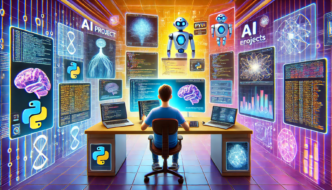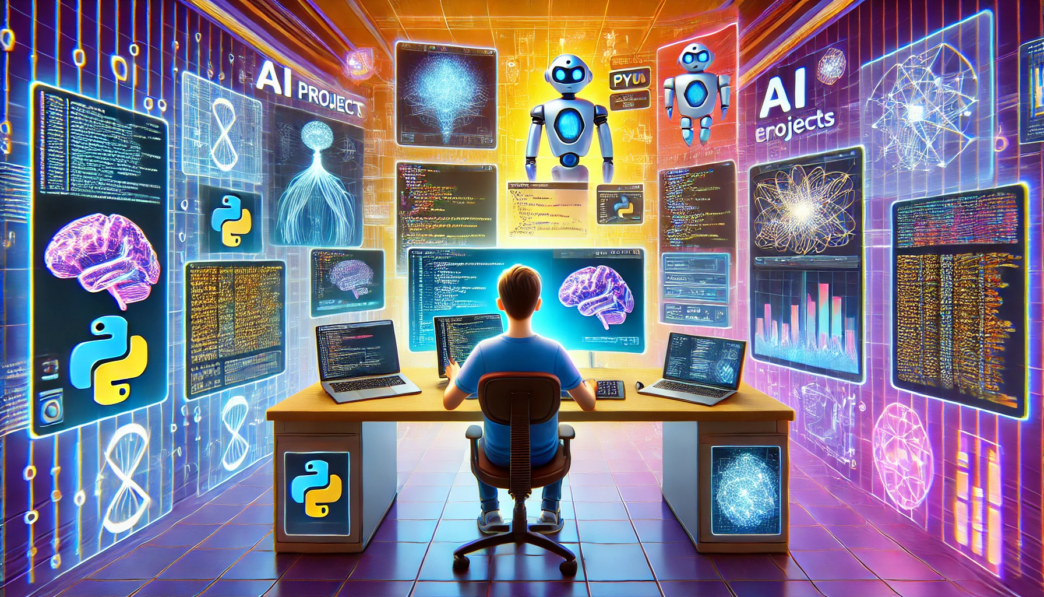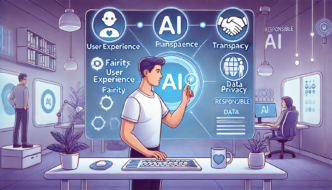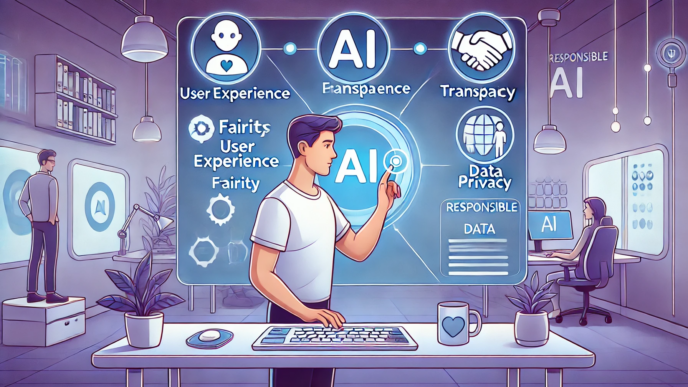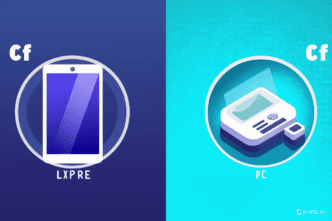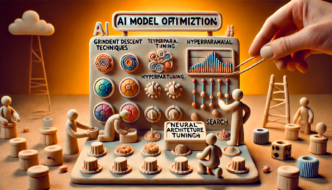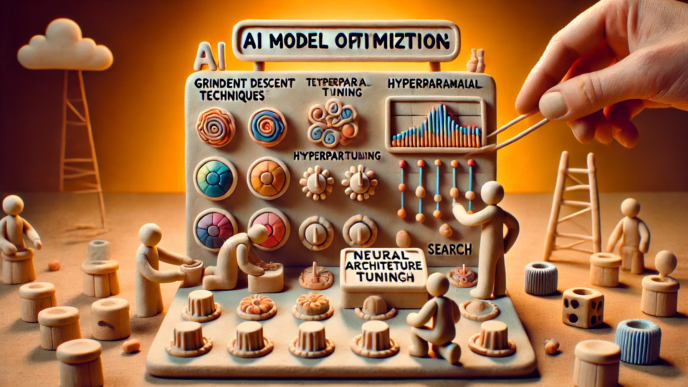Everything About AI Engineering
Picture landing a high-paying AI engineer job in 2025—without a college degree. Sounds far-fetched? It’s more realistic than one might think. As Artificial Intelligence (AI) accelerates at breakneck speed, employers increasingly prioritize tangible skills over traditional diplomas. In this environment, self-taught enthusiasts, career switchers, and AI hobbyists are making an impact with real-world projects rather than formal academic credentials.
With AI job demand skyrocketing, now is the perfect time to jump in. Feeling overwhelmed about where to begin? The following guide explains exactly how to become an AI engineer and secure a position by 2025—no degree required.
What Is AI, and What Are Its Key Subsets?
Artificial Intelligence (AI) refers to endowing machines or systems with capabilities that traditionally require human intelligence, such as comprehending language, recognizing images, and formulating decisions. AI itself is a broad concept, encompassing several core areas:
- Machine Learning (ML)
ML allows systems to “learn” from data rather than relying on explicit instructions—much like a musician who picks up new songs by repeatedly listening. As an AI subset, ML spots patterns and makes predictions without needing rigid, hand-coded rules. Resources to Explore- Coursera’s Machine Learning Course by Andrew Ng
- Google’s Machine Learning Crash Course
- Deep Learning
Deep Learning leverages neural networks with multiple layers, mirroring the complexity of the human brain. This technology drives advanced capabilities, from voice assistants to facial recognition. Resources to Explore- Deep Learning Specialization (Andrew Ng, Coursera)
- fast.ai’s Practical Deep Learning for Coders
- Natural Language Processing (NLP)
NLP focuses on helping machines interpret and generate human language—such as how chatbots respond to text queries or how virtual assistants understand spoken requests. Resources to Explore- Natural Language Processing with Python (book)
- Stanford’s NLP Course (online materials)
- Computer Vision
With computer vision, AI systems analyze visual input like images or videos, forming the backbone of facial recognition software and self-driving vehicle perception. Resources to Explore- Coursera’s Computer Vision Basics
- PyImageSearch Tutorials
Understanding these subfields provides a broad perspective on AI and its practical uses.
What Is AI Engineering?
AI Engineering blends the conceptual and the applied—constructing intelligent systems that solve real-world challenges. Unlike traditional software engineering, which focuses on predefined rules, AI engineering involves building adaptable models that learn from data. Picture an email spam detector that refines itself over time rather than using a manual list of forbidden terms. This dynamic approach makes AI solutions more flexible and precise.
Who Is an AI Engineer?
An AI engineer combines computer science, mathematics, and a domain-specific knowledge base to develop AI-driven applications. Typical responsibilities involve:
- Programming Proficiency: Often in Python or R.
- Mathematical Know-How: Familiarity with statistics, linear algebra, and calculus.
- Domain Expertise: Understanding the sector—healthcare, finance, gaming, etc.—where AI is applied.
Collaboration is key. AI engineers frequently join forces with data scientists, software developers, and analysts to transform AI models into production-ready solutions.
What Do AI Engineers Do?
AI engineers tackle various tasks, including:
- Data Collection & Preprocessing
Gathering data, cleaning it, and preparing it for model training. - Model Development
Selecting algorithms, tuning hyperparameters, and measuring the model’s accuracy. - Integration
Embedding AI capabilities into broader software systems. - Maintenance & Monitoring
Retraining models with fresh data to maintain performance. - Cross-Functional Collaboration
Working alongside different departments to meet enterprise objectives.
In short, AI engineers serve as the link between theoretical machine learning research and real-world applications.
Why AI Engineering?
- High Demand: AI is reshaping industries, fueling a surge in skilled AI roles.
- Competitive Salaries: U.S. AI engineers earn around $175,000 on average, with some surpassing $200,000.
- Innovative Projects: From autonomous driving to personalized healthcare, AI engineering is at the cutting edge of technology.
- Future-Proof Career: As AI usage grows, the need for AI-savvy experts increases correspondingly.
Difference Between an AI Engineer and an ML Engineer
An AI engineer addresses the broader scope of artificial intelligence applications—machine learning, natural language processing, robotics, and more. Meanwhile, an ML engineer specializes in machine learning specifically, honing algorithms that enable systems to learn from data. While every ML engineer is working within AI, not all AI engineers limit themselves to ML tasks alone.
Do You Need a Degree To Become an AI Engineer?
The short answer: No. Major companies (Google, IBM, etc.) increasingly emphasize skills and practical experience over formal degrees. Aspiring AI engineers can achieve success through:
- Project Portfolios: Demonstrating coding and model-building via GitHub.
- Hands-On Experience: Tackling real-world AI issues, open-source contributions, or hackathon participation.
- Certifications: Platforms like Coursera, edX, or Udacity offer credentials that prove specific skill sets.
- Networking: Joining AI communities, attending meetups, and engaging with professionals on LinkedIn.
With genuine commitment and strategic planning, a self-taught path can be just as rewarding as a university route.
Average AI Engineer Salary
AI engineers in the U.S. command an average salary of about $175,000. Compensation generally hinges on:
- Experience: Entry-level roles start around $90,000–$120,000, while seasoned professionals can exceed $200,000.
- Location: Salaries often rise in tech-centric cities like San Francisco or Seattle.
- Industry: Fields like finance or autonomous systems may pay more than mainstream software jobs.
Top-tier AI engineers, especially those at research-focused organizations (Google DeepMind, OpenAI, Tesla, etc.), can eclipse $300,000 with stock options and bonuses included.
Types of AI Engineers
- Machine Learning Engineer: Concentrates on designing and refining ML algorithms.
- Deep Learning Engineer: Focuses on neural networks for tasks like voice recognition or image classification.
- Computer Vision Engineer: Specializes in visual data and applications (e.g., face detection).
- NLP Engineer: Builds language-centric solutions, such as chatbots and virtual assistants.
- AI Research Scientist: Investigates cutting-edge models and algorithms.
- Robotics Engineer: Develops AI-empowered robotics for automation and manufacturing.
Each role demands overlapping core skills but caters to distinct project contexts.
Top Skills To Learn for AI Engineering
- Programming Languages
Python reigns supreme, although familiarity with R, Java, or C++ is beneficial. Resources:- Python for Data Science and Machine Learning Bootcamp (Udemy)
- Automate the Boring Stuff with Python (free ebook)
- Mathematics & Statistics
Proficiency in linear algebra, probability, and calculus forms the foundation of AI. Resources:- Mathematics for Machine Learning (Coursera)
- 3Blue1Brown YouTube channel for intuitive math videos
- Machine Learning & Deep Learning
Knowledge of frameworks like TensorFlow or PyTorch is vital for training and deploying models. Resources:- fast.ai Practical Deep Learning for Coders
- Deep Learning Specialization (Andrew Ng, Coursera)
- Data Structures & Algorithms
Working with massive datasets requires efficient data structures and optimized algorithms. Resources:- GeeksforGeeks
- MIT OpenCourseWare — Introduction to Algorithms
- Cloud Computing & Big Data
Familiarity with AWS, Google Cloud, or Azure aids in handling large-scale AI processes. Resources:- Google Cloud’s ML Training
- AWS AI & ML Certification
- Soft Skills (Critical Thinking & Communication)
AI engineers collaborate with non-technical stakeholders who may need thorough yet accessible explanations. Resources:- Teamwork Skills: Communicating Effectively in Groups (Coursera)
- edX Critical Thinking & Problem Solving
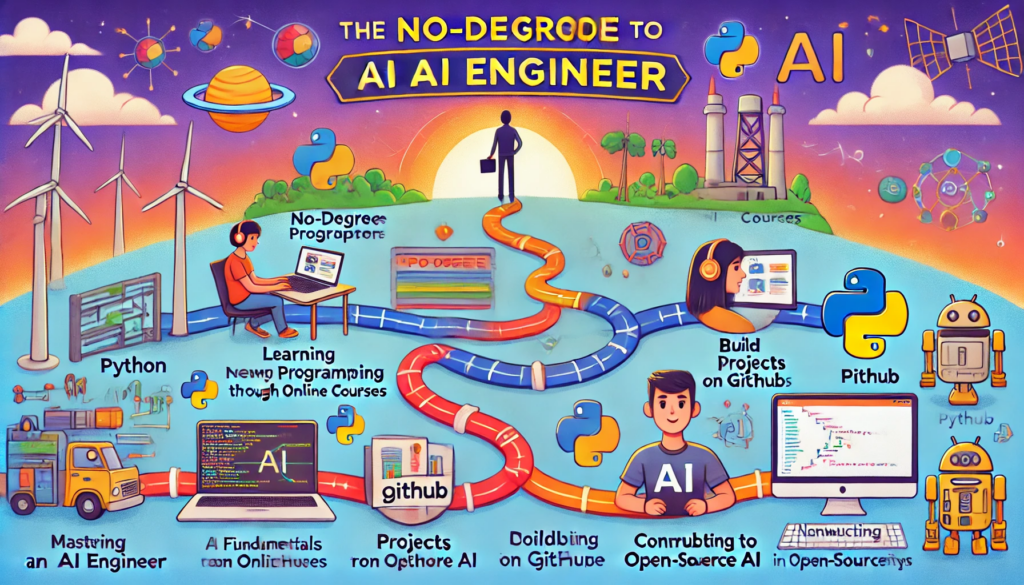
Step-by-Step: How To Become an AI Engineer (No Degree Needed!)
Step 1: Learn Basic Programming
Focus on Python to start, given its ease of use and rich AI ecosystem.
Recommended:
- Harvard’s CS50 Introduction to Computer Science (free)
- Python for Everybody (Coursera)
Step 2: Master Math & Statistics
Concentrate on probability, linear algebra, and calculus—essential for grasping algorithmic theory.
Recommended:
- Mathematics for Machine Learning (textbook or Coursera)
- Khan Academy: Probability & Statistics
Step 3: Dive Into Machine Learning
Begin with simpler projects (e.g., spam detection or basic stock price predictions) before tackling more complex ML tasks.
Recommended:
- Google’s Machine Learning Crash Course
- Hands-On Machine Learning with Scikit-Learn & TensorFlow (book)
Step 4: Build Real-World AI Projects
Practical application remains the best teacher. Engage in AI side projects such as chatbots, recommendation systems, or image classifiers.
Where To Find Projects:
- Kaggle for datasets and competitions
- AI Crowd for real-world challenges
Step 5: Create a Strong Portfolio
Employers want tangible proof of what an applicant can accomplish. A robust portfolio demonstrates problem-solving skills, creativity, and expertise.
How To Build an AI Portfolio:
- Start Simple: Develop projects like spam filters or digit recognizers.
- Contribute to Open Source: Work on GitHub repositories, gain visibility in the AI community.
- Full End-to-End: Show data collection, model creation, and deployment all in one project.
- GitHub & Kaggle Presence: Maintain detailed readmes and documentation.
- Personal Website/Blog: Present project overviews, progress write-ups, and AI tutorials.
Step 6: Network with AI Professionals
Connections can spark unexpected opportunities and mentorships.
Effective Networking Tactics:
- Join AI Communities: Reddit’s r/MachineLearning, LinkedIn groups, Kaggle forums
- Attend AI Meetups & Conferences: NeurIPS, CVPR, AI Summit
- Engage AI Experts Online: Follow Andrew Ng, Yann LeCun, and Sebastian Raschka
- Seek Mentorship: Send targeted, personalized messages on LinkedIn
Step 7: Apply for AI Engineer Roles
With skills and a polished portfolio in hand, begin job-hunting.
Where To Look:
- LinkedIn Jobs for diverse AI listings
- Indeed & Glassdoor for industry-specific opportunities
- AI-Focused Boards like AI Jobs Board, Otta
Interview Prep Checklist:
- Tackle coding challenges on LeetCode or HackerRank.
- Master ML, deep learning, and Python fundamentals.
- Present projects confidently, highlighting challenges and solutions.
Step 8: Keep Upskilling
AI evolves rapidly. Staying updated ensures ongoing career growth.
Recommended Learning Paths:
- AI for Everyone (Coursera)
- Udacity AI Nanodegree
- Stanford CS231n: Deep Learning for Computer Vision (for vision-focused work)
Best Online Courses for AI Engineers
Beginner-Level
- AI for Everyone — Coursera (Andrew Ng)
An accessible overview that demystifies AI’s impact on various sectors, ideal for those new to the field. - Python for Data Science & Machine Learning — Udemy
Teaches Python fundamentals plus the basics of ML. Great for hands-on practice. - CS50’s Introduction to AI with Python — Harvard
Provides a practical foundation, covering search algorithms and introductory ML projects. - Machine Learning Crash Course — Google
Free and interactive, with exercises geared toward those new to ML.
Intermediate-Level
- Machine Learning — Coursera (Andrew Ng)
A definitive course covering supervised and unsupervised learning, essential ML techniques, and best practices. - Deep Learning Specialization — Coursera (Andrew Ng)
A five-course collection diving deeper into neural networks and their applications. - Introduction to TensorFlow for AI — Coursera
Focuses on the TensorFlow framework, a staple in deep learning projects.
Advanced-Level
- Stanford CS231n: Deep Learning for Computer Vision
Explores convolutional neural networks (CNNs) for cutting-edge image and video tasks. - Reinforcement Learning Specialization — Coursera
Perfect for those aiming to develop AI agents for robotics, gaming, or decision-based systems. - Full Stack Deep Learning
Concentrates on building and deploying deep learning models in live production settings.
Career Path of an AI Engineer
- Entry-Level AI Engineer (0–2 Years)
Tasks often revolve around data cleaning, model experimentation, and simpler ML workflows.
Salary Range: $90,000–$120,000 - Mid-Level AI Engineer (2–5 Years)
Involves refining pipelines, improving algorithms, and implementing AI for commercial products.
Salary Range: $120,000–$175,000 - Senior AI Engineer (5+ Years)
Leads AI teams, optimizes deep learning architectures, and shapes strategic AI initiatives.
Salary Range: $175,000–$250,000 - AI Research Scientist / AI Architect
Delves into advanced R&D in topics like reinforcement learning, NLP, or computer vision.
Salary Range: $200,000–$400,000 - CTO / AI Startup Founder
Transitions to leadership or entrepreneurial roles, spearheading new AI ventures.
Future Scope for AI Engineers
AI engineers remain in high demand across industries:
- Healthcare: Disease prediction, medical imaging, personalized treatment plans
- Autonomous Vehicles: Self-driving cars, AI-based traffic optimization
- Finance: Fraud detection, algorithmic trading, risk analysis
- Creative AI: Tools like ChatGPT and DALL·E for content creation and art
- Cybersecurity: Real-time threat identification and mitigation
Experts anticipate AI engineers will rank among the most sought-after professionals globally by 2030, cementing AI engineering as a solid career choice.
Conclusion
Becoming an AI engineer without a degree in 2025 is genuinely feasible. By mastering foundational skills (Python, ML, deep learning), creating impactful projects, networking strategically, and continuously learning, individuals can stand out to hiring managers.
- Build Foundations: From Python to ML math basics
- Engage in Projects: Showcase end-to-end solutions on GitHub or Kaggle
- Form Connections: AI meetups, industry forums, LinkedIn engagements
- Apply & Interview: Market your skills effectively, emphasizing real-world results
- Keep Learning: Evolve with AI’s dynamic landscape
The most critical factor is consistent action. Each project, connection, or course propels an aspiring AI engineer closer to a rewarding, well-paid role—no degree needed.
